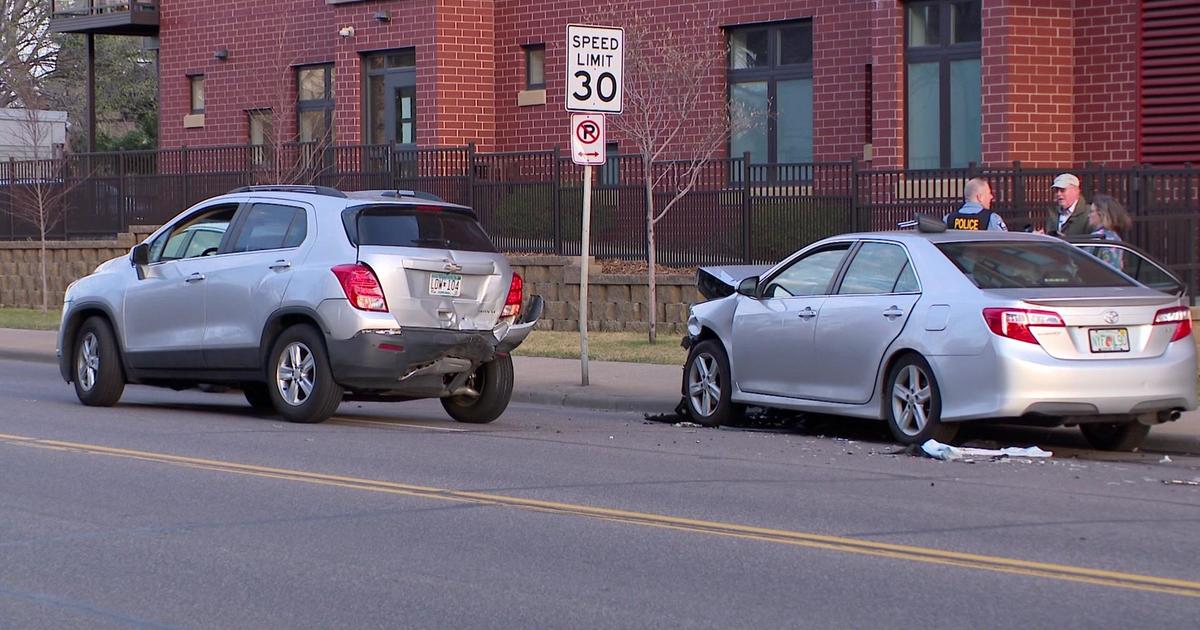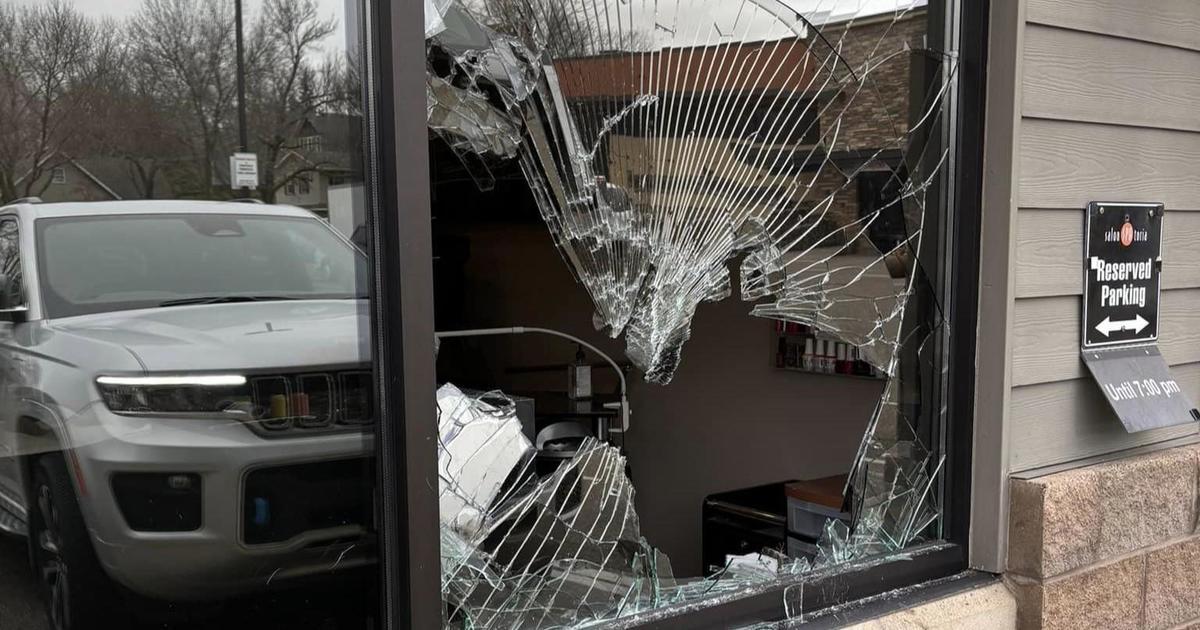By Eric Henderson
Memo to St. Valentine: I hate love.
OK, that's hardly the case, even if there have been plenty of moments that make me believe love hates me. Regardless, I think it's accurate to say that I am a lot shakier about my feelings toward the concept of love than I am about movies. So when the two interests are set in contrast with each other and the result is both a great film and a great defense for the virtue of romance, it's frequently difficult to untangle which of the two aspects is responsible.
Or not. While compiling a list of the best romantic movies, many of the titles I immediately shortlisted actually functioned as "anti-romantic" classics. And furthermore, many of the titles that were still technically lush, swooning depictions of starry-eyed bliss still retained elements of unrequited love.
And so I've split my top 10 into two separate lists, one for the hopelessly devoted romantics and one for the unapologetic skeptics, though all are to varying degrees very good movies. (Well, except every part of Love, Actually that doesn't involve Emma Thompson.) As with all lists, the selections I've made undoubtedly say as much about myself as they do about the universal amore, if not more. But if you're as much in love with movies as you are with that special someone, maybe a few of these titles can help you bring both worlds together ... or, you know, tear them apart.
|
 |
|
|
 |
|
Most Romantic
|
 |
Most Anti-Romantic
|
|
 |
|
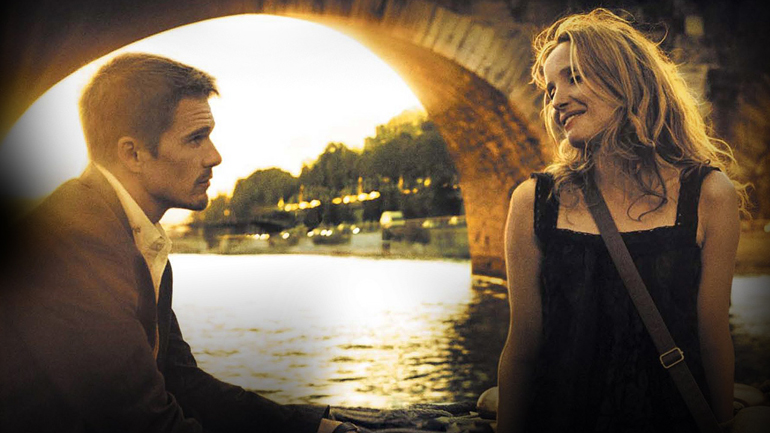 |
 |
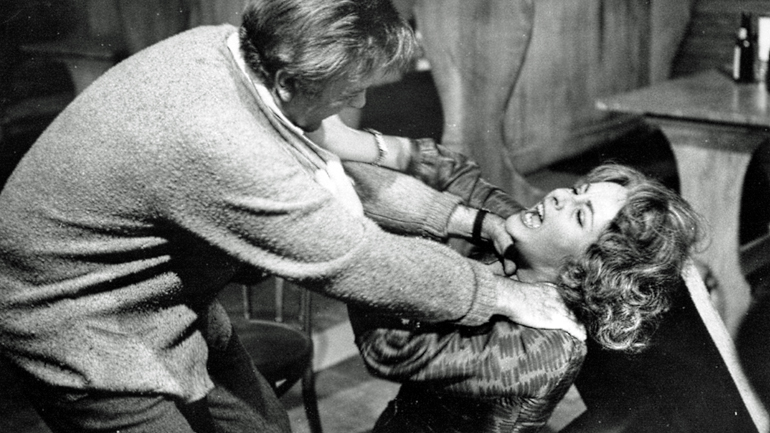 |
|
 |
|
01. Before Sunset
(Richard Linklater; USA/France; 2004)
A recent Onion headline that struck a chord with everyone I know and everyone they know: "Everyone You've Ever Had A Crush On Secretly Had A Crush On You, They Still Do, And They're Waiting For You." The ultimate fantasy that anyone who has ever found it within themselves to fall in love with someone they, for whatever reason, didn't have the courage to approach is gracefully, gorgeously fulfilled in the sequel to Richard Linklater's already rapturously romantic 1995 film Before Sunrise. Nine years after their brief encounter one many splendored night in Paris, Ethan Hawke and Julie Delpy's Jesse and Celine are reunited and navigate whether the spark is still there. A magical, real-time masterpiece. |
 |
01. Who's Afraid of Virginia Woolf?
(Mike Nichols; USA; 1966)
"George and Martha: sad, sad, sad." Edward Albee's excoriating Broadway sensation about the world's most embittered husband and wife elevated verbal abuse into a gutter-dwelling work of art, nothing less than a three-act annihilation of every soft-headed myth surrounding the institution of marriage. The play's hysterical blue dialogue was beyond the pale in the early '60s, and many figured Hollywood would sanitize Albee's delicious venom beyond recognition. Nothing doing. As a Warner executive reportedly exclaimed after viewing an early cut: "My God! We've got a $7 million dirty movie on our hands!" With Elizabeth Taylor and Richard Burton (themselves one of Tinseltown's most legendarily volatile couples) portraying the toxic pair, the movie was also a sensational hit, forever altering the boundaries of acceptable on-screen language. It remains the ultimate bad date movie. |
|
 |
|
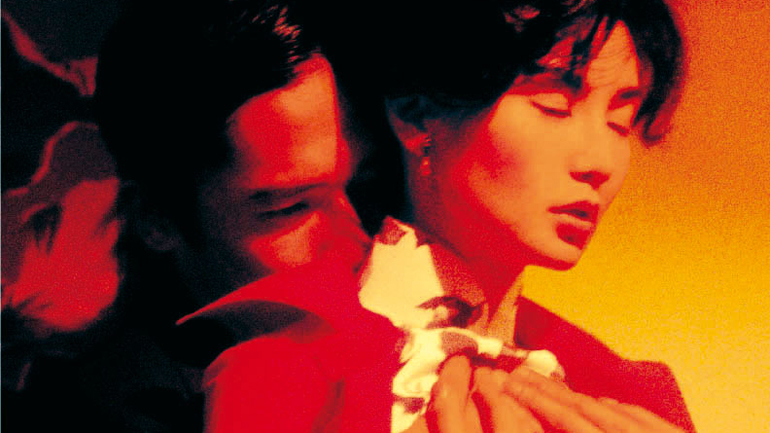 |
 |
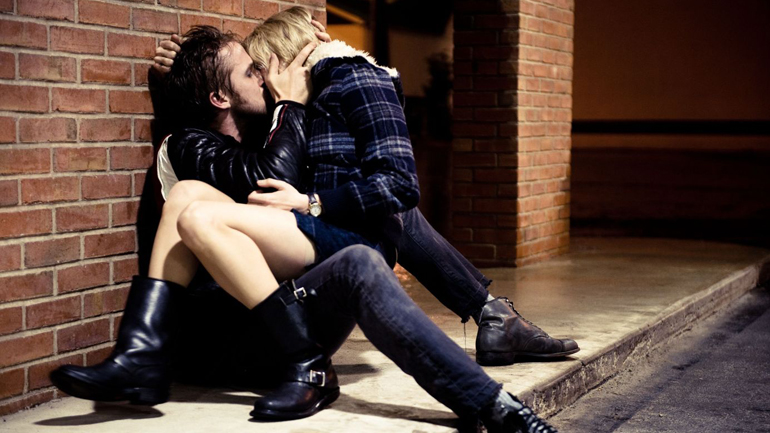 |
|
 |
|
02. In the Mood for Love
(Wong Kar-wai; Hong Kong; 2000)
Romances that don't pan out seem to be a running theme among my list of the most romantic films. What can I say? Unrequited love is just more photogenic. And there can't be a dozen films throughout the last hundred years more gorgeously filmed than Wong Kar-wai's turn of the century masterpiece In the Mood For Love. Maggie Cheung and Tony Leung play next door neighbors in 1960s Hong Kong who mutually discover that their spouses are cheating on them with each other. Both desperately lonely, Mrs. Chan and Mr. Chow glamorously weigh their limited options in cinematographers Christopher Doyle and Mark Lee Ping Bin's lush frames and Michael Galasso's mournful musical score. Love has rarely hurt so good. |
 |
02. Blue Valentine
(Derek Cianfrance; USA; 2010)
The "honeymoon stage" has never ended as decisively and as painfully as it does in the raw, painful Blue Valentine. Even director Derek Cianfrance seems to want to avert his eyes, juggling the movie's chronology as Ryan Gosling and Michelle Williams' hot-blooded hipster lovers plunge from "meet cute" to "Hit me!" Neither Gosling nor Williams have ever been better, and though it's ultimately too painful for words (Grizzly Bear's music fills in the gaps), the movie never loses its chokehold on twisted intimacy. |
|
 |
|
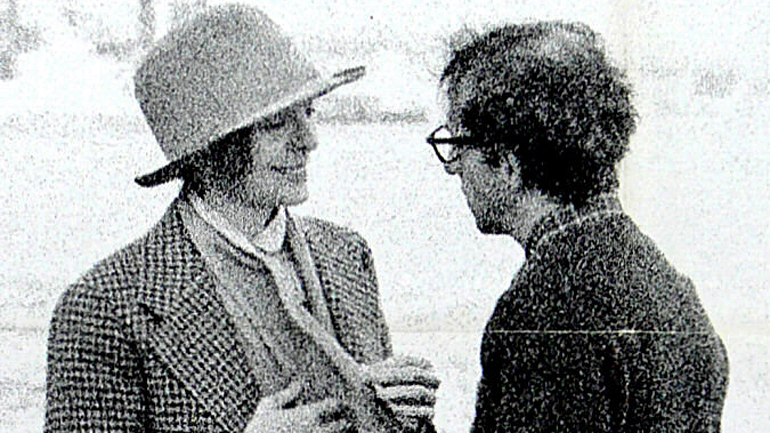 |
 |
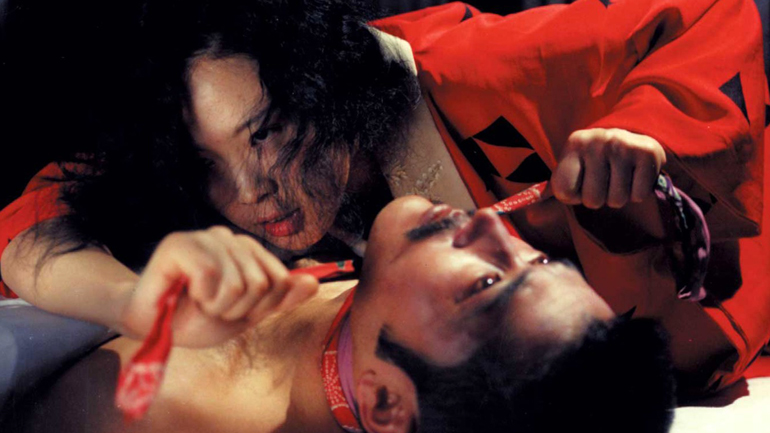 |
|
 |
|
03. Annie Hall
(Woody Allen; USA; 1977)
Now might not be the most convenient time to cite Woody Allen's masterpiece as one of the greatest of romantic movies, but no amount of editorials and think pieces can take away the level of intelligence Allen brought to his scattered, heartbreaking, self-deprecating New York fable. Never has his persona -- that of a witty intellectual with a knack for denigrating his own worth -- been more universal than it was here. Who among us hasn't thought themselves inferior to their object of desire? Equally bitter and sweet, Annie Hall's honest poignancy makes all other rom-coms look twee in comparison. |
 |
03. In the Realm of the Senses
(Nagisa Oshima; Japan; 1976)
Among the string of controversial '70s movies whose content blurred the lines between art and pornography, perhaps none ruined more evenings than Nagisa Oshima's uncompromisingly explicit In the Realm of the Senses. (It was, in fact, heavily censored in its initial release in Oshima's homeland Japan.) Based on a real-life case that ... well, I'll spare you the gory details, but suffice it to say that no one would've been surprised to see this film show up on a list of the movies Lorena Bobbitt rented in 1993. Beyond its headline-grabbing climactic act, though, is a film that suggests to fall in love is to end your own life, at least metaphorically speaking. |
|
 |
|
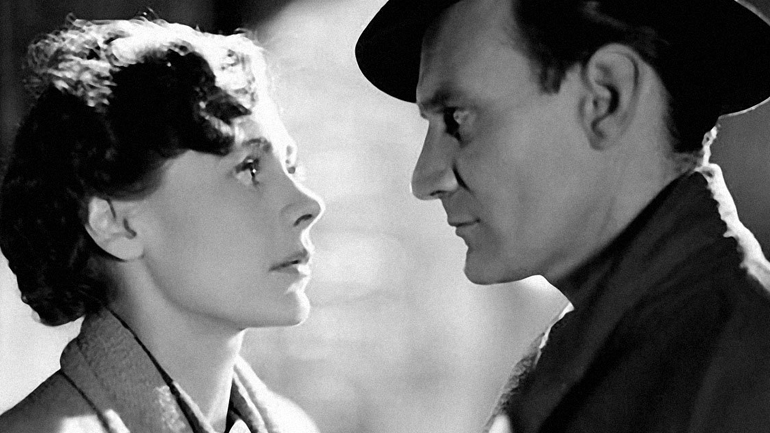 |
 |
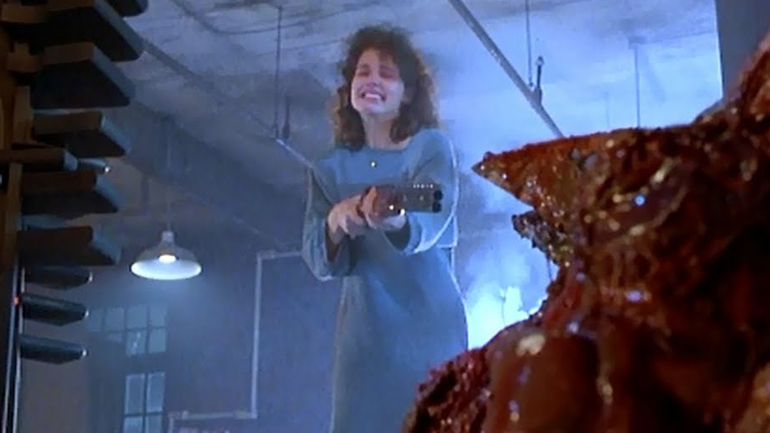 |
|
 |
|
04. Brief Encounter
(David Lean; UK; 1945)
I mentioned the theme of unrequited love already, and David Lean's stiff-upper-lip classic is more or less the urtext for doomed romance. Celia Johnson suffers valiantly as the bored housewife and mother who deigns badly to spend some quality time with the doctor she meets on the train (Trevor Howard). No one does repression quite like the Brits, and their failure to launch soars with quite a bit of help from Sergei Rachmaninoff. |
 |
04. The Fly
(David Cronenberg; USA; 1986)
Love means never having to say you're transforming into a giant insect. Just as Jeff Goldblum's not-mad-just-jumpy scientist unwittingly merges his own hulk with that of an errant fly, so too did director David Cronenberg amalgamate his fondness for icky biological grue (Scanners, The Brood) with the sort of stately fatalism that has characterized much of his work since (Dead Ringers, Spider). The movie functions most overtly as a metaphor for terminal illness, but it also argues that being in love will eventually force you and your partner to make impossible decisions one day. (See also: Michael Haneke's Amour or, on the positive side, Make Way for Tomorrow.) |
|
 |
|
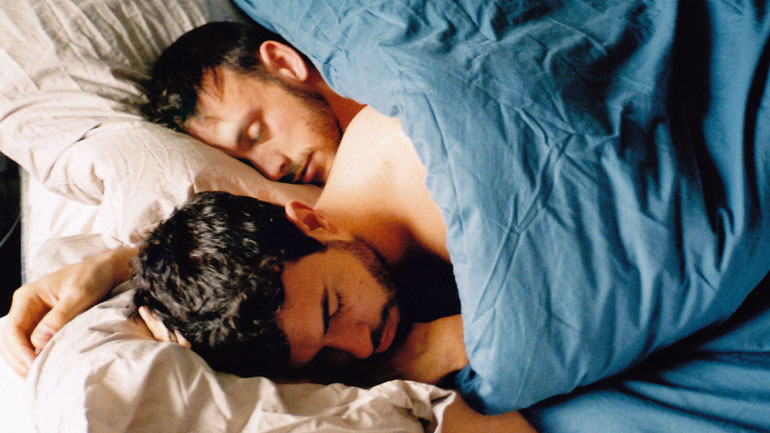 |
 |
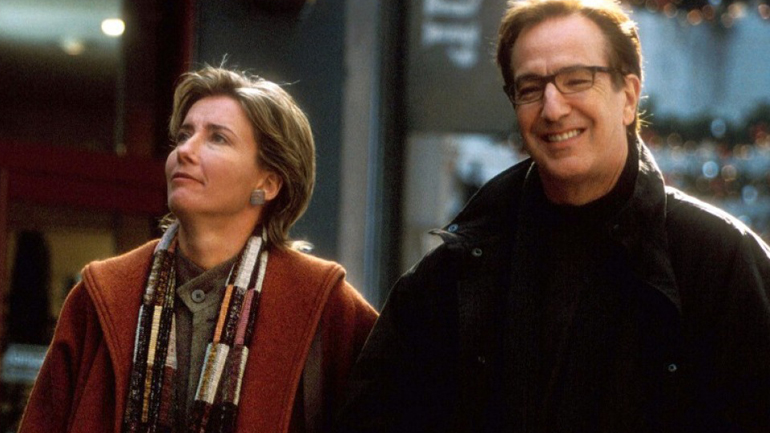 |
|
 |
|
05. Weekend
(Andrew Haigh; UK; 2011)
And here I buck the trend of unrequited love. Why? Because for far too long cinematic same-sex couples have been forced to sublimate their feelings and settle for expurgated representations. For that reason alone, I bumped the zeitgeist-roping Brokeback Mountain down to honorable mentions in favor of Andrew Haigh's breakthrough Weekend. The two lovers in the film are, much like Celine and Jesse in Before Sunrise, working against a ticking clock. But their total honesty with their sexuality and each other is so refreshing. |
 |
05. Love Actually
(Richard Curtis; UK; 2002)
As the film -- easily among the most beloved romantic comedies of the 21st century so far -- reached its 10th anniversary, it unexpectedly became a flash point for those questioning its actual credentials as a "romantic" film, spearheaded by Christopher Orr in The Atlantic. He's right on every one of his points, but in case you think he and I are nuts and/or perpetually lonely souls, here's a fierce rebuttal. |
|
 |
|
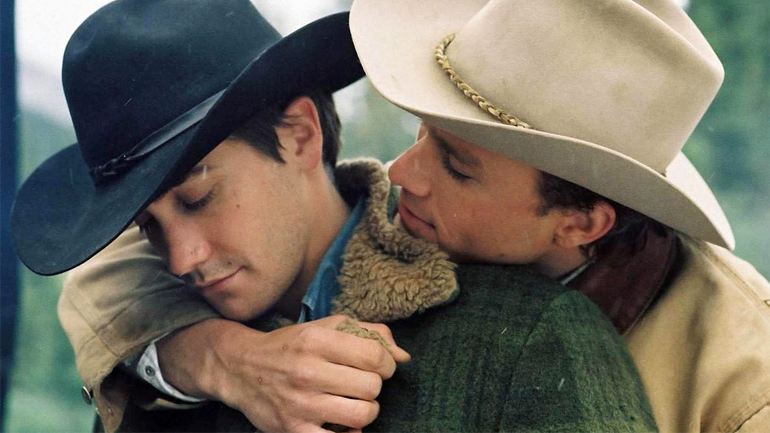 |
 |
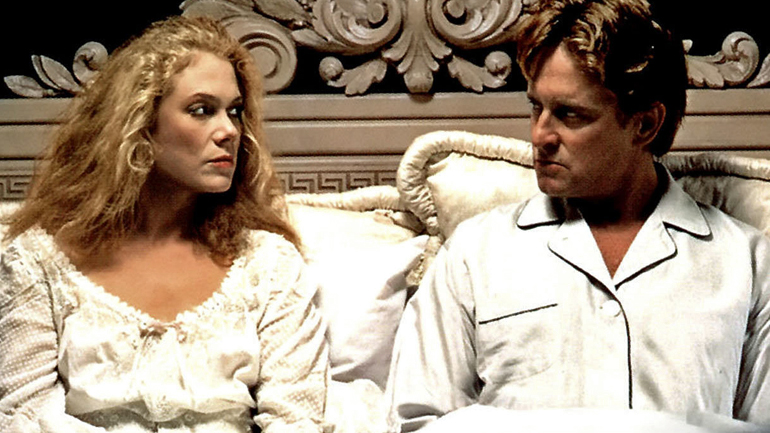 |
|
 |
|
Honorable Mentions
(in alphabetical order)
All That Heaven Allows (Douglas Sirk; 1955)
Brokeback Mountain (Ang Lee; 2005)
City Lights (Charlie Chaplin; 1931)
Dogfight (Nancy Savoca; 1991)
Gone with the Wind (David O. Selznick; 1939)
Letter from an Unknown Woman (Max Ophuls; 1948)
Sunrise (F.W. Murnau; 1927)
The Umbrellas of Cherbourg (Jacques Demy; 1964)
WALL-E (Andrew Stanton; 2008)
William Shakespeare's Romeo + Juliet (Baz Luhrmann; 1996) |
 |
Honorable Mentions
(in alphabetical order)
Amour (Michael Haneke; 2012)
Before Midnight (Richard Linklater; 2013)
The Boys in the Band (William Friedkin; 1970)
Breaking the Waves (Lars Von Trier; 1995)
Happiness (Todd Solondz; 1998)
Leaving Las Vegas (Mike Figgis; 1995)
Looking for Mr. Goodbar (Richard Brooks; 1977)
Mulholland Drive (David Lynch; 2001)
Vertigo (Alfred Hitchcock; 1958)
The War of the Roses (Danny DeVito; 1989) |







































